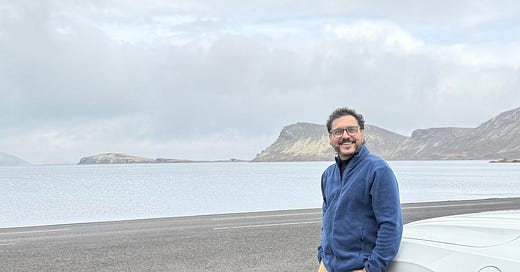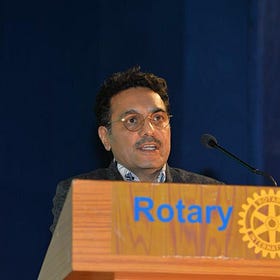I read Die With Zero by Bill Perkins a couple of years ago and it stuck with me. The ideas took time to sink in, but once they did, they changed everything.
The book didn’t just challenge my financial habits. It shattered them. I’d spent years following the usual script: work, save, invest, build security. And I did it. But I never asked the deeper question: what was I saving for?
That’s the trap. We’re so focused on the future that we ignore the present. We hoard money like time is endless. But it’s not. Time runs out. Health declines. The people we love won’t always be here. ‘Later’ isn’t a guarantee. It’s a gamble.
Perkins held up a mirror. His message forced me to see how much of life I was deferring. And once I saw that clearly, I changed course.
I started shifting money not just to save lives or futures, but to shape moments. Now, I gave more to my foundation, not in one final gesture, but through decisions I could be present for. I stopped waiting to feel ‘deserving’ of rest, travel, joy. I booked the trip to Iceland I’d been putting off for years. I started saying yes to the things that made life feel alive.
Last year, I began distributing my wealth to both my sons. Not as inheritance. As opportunity. When it matters most. I realised how much more impact I could have by supporting them now, while they’re in the thick of raising kids, building careers, making big decisions. Why wait to make a difference I could actually witness?
I also began treating time and health like the finite resources they are. This wasn’t about acting recklessly. It was about acting consciously. Knowing my enough. Not as a number, but as a point of clarity.
And that rewired how I give. Instead of saving the impact for after I'm gone, I’ve started investing in people while I’m still here. It’s not just about charity. It’s about connection. It’s about legacy, lived in real time.
So ask yourself:
If nothing changed, would you be proud of how you’re spending your time? Are you building memories or just balance sheets? Are you saving for life or postponing it?
You don’t get to rewind. But you do get to decide what comes next.
What would you do differently if you truly believed you had enough?
Incase you missed the previous issue on The Adaptable Life, here are the highlights:
Authenticity Wins Over Perfection: When things go wrong, showing up as your imperfect, real self can inspire others far more than polished appearances ever could.
Resilience Is Built Through Adaptation: Life’s disruptions are inevitable, but our power lies in how we respond—viewing setbacks as opportunities fuels personal growth and unexpected breakthroughs.
Reframe Stress and Setbacks: By seeing stress as fuel and asking, “What if this is perfect?”, we can turn crises into catalysts for creative solutions and lasting improvements.
Practice Flexibility Daily: Small, everyday choices to step out of comfort zones—like trying new routes or unfamiliar foods—build the adaptability muscle needed to navigate bigger life upheavals with grace.
The Adaptable Life
·Coffee in hand, I drove toward the convention centre where hundreds of Rotary members waited for my keynote address. Then it happened. A pothole, a jolt, and hot coffee across my white shirt and printed speech.
Thank you for taking out time to read the whole newsletter. We are glad to see you read this message. ☺️
Hope it added value to your wonderful day. If yes, please consider sharing your appreciation on social media and sharing it with anyone who you think might benefit from it.
You can find the links to my social media profiles in the footer.
Meet you on the Twenty first Sunday (21/52) of 2025. Take care






Jai shree Krishna.. great pause to think and rewire on a Sunday morning.thanks .
Nicely articulated, yes I so agree with you. Another book I came across that articulates something similar is Die Broke by Stephen Pollan.It challenges readers to rethink the script they've been handed about money, success, and life’s milestones. Of course challenging one's scripts can take a life time & still not get done! But thanks for a nicely articulated essay!